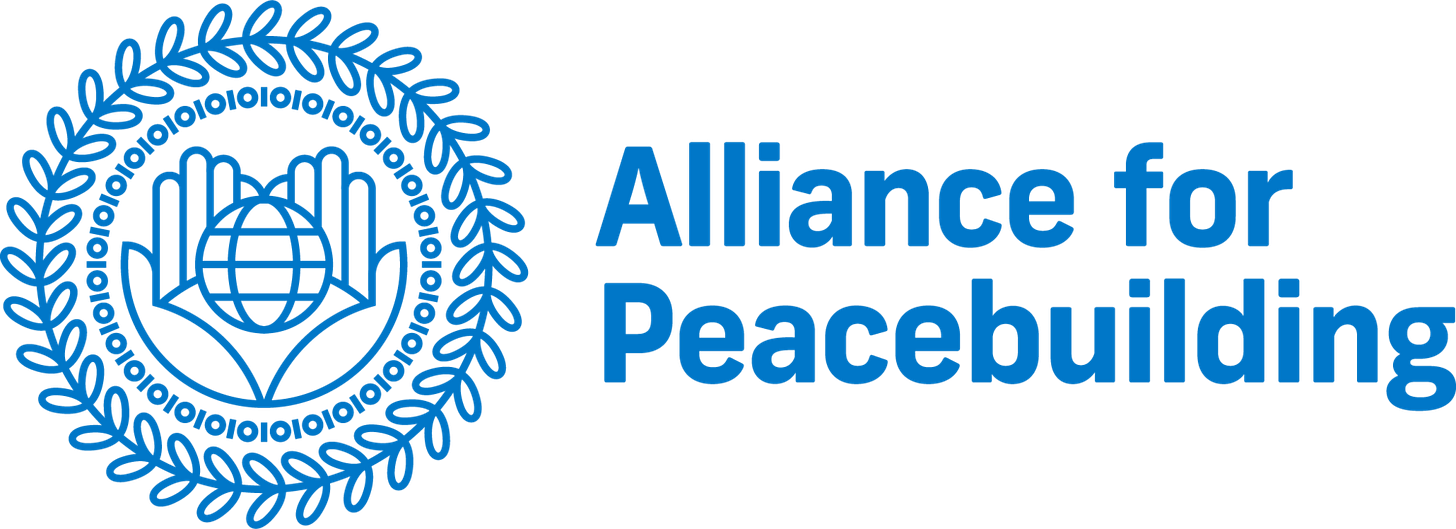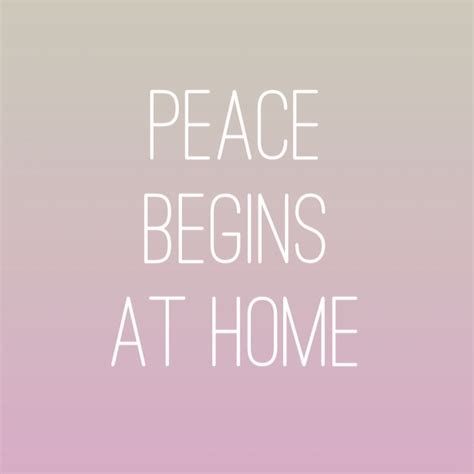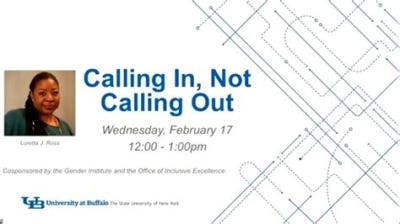I am delighted to announce that the Alliance for Peacebuilding (AfP) just launched its Peacebuilding Starts at Home. If you go go out web site, you will see that it is at best a bare-bones operation. Nonetheless, it a a major new initiative on our part and a major step forward for us as an organization.
AfP was created in 2002 as a small network of American-based peacebuilding NGOs that did almost all of their work abroad. Over the years, our membership has expanded to the point that we are the largest network of peacebuilders in the world. About a third of our member organizations are based outside the United States. Some have budgets that top nine figures, although the vast majority of them are small networks that next to no one has heard of.
Peacebuilding Starts at Home
For the purposes of this post, the most important thing to note is that a significant number of our American-based members have realized that they have to work on the problems we face here at home, too. As I put it at one of our first meetings on the subject, “how dare we tell people in Burundi that we can help them solve their problems if we can’t do so here in Baltimore?” (I have since learned that the line “works” for any combination of a country in the global south and an American city whose names start with the same letter.)
We know that we are entering a “crowded space” that is filled with organizations that are already doing terrific work. Rather, we are taking the next step and “upping our game” to fill what strikes us as four gaps in what others are already doing to address what the Judy and Peter Blum Kovler Foundation refers to as “America’s neglected needs” As we see it, our job is to add to what our colleagues are already doing so that we can both shift key cultural norms and build a movement that become strong enough to pave the way for sweeping public policy changes that amount to the kind of paradigm shift I’ve been ranting about since I was an undergraduate in the 1960s.
There is no need for us to every try to do it all. Plenty of other organizations==including many of our own members—who are already doing terrific work and there is no need to duplicate their efforts.
We intentionally launched Peacebuilding Starts at Home before we had everything figured out because we know it will always be a work in progress. Nonetheless, we know that it will have these four overlapping projects, and we would love your help in fleshing each of them out.
Understand Our Divisions and the Ways We Could Overcome Them
It won’t be hard to do the first half of this first task. After all, it is hard to escape the news about how divided we are and analyses of what ails us.
What we can do is take advantage of the fact that we are peace builders. I split the word peacebuilding into two and emphasized its second half because it is who we are and what we do.
While we are well aware of the problems we face, they are not what we choose to focus on. Our job is not to focus on what George Lopez called Doom and Gloom 101 at the first annual conference of what is now the Peace and Conflict Studies Association in 1988. Rather, we want to propose and build support for constructive alternatives to the status quo, In the language popularized by Loretta Ross, we are a lot more interested in “calling people in” than we are in being critical of the powers that be and their supporters.
So, the more important and more challenging part of this first task is to identify and promote the good ideas that Americans keep coming up with. That becomes the first step in what I call “going to scale outward” or spreading new and creative ideas so that we can begin building the movement I alluded to a few paragraphs ago.
Connect Average Americans to Existing Projects and Create New Ones
Second, we plan to work with AfP members and other partners to dramatically expand the number of grassroots peacebuilders who aren’t just aware of what our problems are but choose to do something about them. Polling data suggests that millions of Americans would love to be involved in making things better but either don’t know what they can do or believe that, if they acted, it wouldn’t make a difference.
We hope to tilt the balance toward activism by using what my late friend Dick O’Neill and I used to refer to as catalytic convening. In everyday English, we would bring strange political bedfellows together (convening) and then help them (catalytic) come up with creative things they could do together. In essence, we will become the peacebuilding equivalent of a Silicon Valley incubator whose goal is to spark breakthrough projects that could change the country rather than create companies that can become unicorns.
That will happen by building two sets of partnerships, each of which I’ve personally been working with for the last decade or so. First are the peacebuilders who work on American domestic issues. Second and more importantly here, I’ve sought out potential allies who don’t think of themselves as peacebuilders but who are doing intriguing things on other issues like race or climate change or economic inequality that would have to be included in any successful movement that calls in people to do peace.
To the degree that either kind of initiative has made progress, it has been at the local level. Portland OR. The hills of Western Massachusetts and Eastern Kentucky. Columbia SC. Etc.
Our challenge is to convene peacebuilders and others who are doing that work and help them see, first, that they could benefit from getting to know each other and that we all would benefit if they found ways of working together in ways that built even more support for their approach to peacebuilding around the country .
We have already started identifying and reaching out to potential partners in the peacebuilding and other communities who are doing promising things. Beginning in the next few weeks, we will begin working some of them to figure out how to expand the projects they are already working on and, more importantly, help them incubate new ones that will expand their work into territory we can only dream of today.
One of the people I’ve met is the evolutionary biologist David Sloan Wilson who talks about “archipelagos” that are growing out into the “ocean.” In that respect, we hope to do three things:
Help speed the growth of existing archipelagos by working with individuals and organizations who already have projects underway
Create new archipelagos by incubating projects both in new new communities and that cross issue-based or ideological lines
“Fill” in the “water” between the archipelagos by connecting the dots that could tie them together intellectually and/or politically
All will require getting our member organizations to work with each other to take their work to scale, most often by taking what is working in a city like Portland and adapting it for use elsewhere. It will also involve bringing together our potential partners, like Wilson’s ProSocial or my friends in Zebras Unite or the emerging crowdsourced investment movement or ….
The best initiatives we have seen so far are highly localized. Our challenge will be to help spread those kinds of initiatives by catalyzing new projects. To some degree that can be done by building working coalitions among our existing members, but it will require building broader coalitions with these and other organizations that as I put it in entitling this blog, “connecting the dots.”
Coach Everyone Who Accepts Our Invitation
Most people who attend AfP’s annual PeaceCon are full-time peacebuilders. Even though most of them have years of training and experience in the field, we make certain to include a fair amount of time for professional development both in the formal program and in the time we set aside for networking.
Now, we are seeking to enroll partners who not only lack that kind of professional training but also have day jobs in some other field. We already know that because it is true of the average citizens we have met through Rotary, Youth and Peace in Action, and other esisting grass roots based peacebuilding projects.
In fact, I saw ways of doing this over the weekend. On Saturday, the Rotary eClub of Global Peacebuilders that Gretchen and I belong to held its annual District Peace Conference for our Rotary District which covers most of Virginia. There were only three professional peacebuilders in the room—the two of us and our friend Julie Rouge who was one of the speakers. Everyone else is eager to be a peacebuilders but has to do it on top of a day job and their other Rotary commitments. Still, it was clear that successful movements are based on people like our fellow Rotarians, not on full=time activists like ourselves.
In other words, we know that AfP and its partners will have to “coach” or “train” the tens of thousands of new activists we plan on inspiring. If nothing else, we will have to provide the equivalent of a help desk that activists can call for advice. We also will have to create self-paced curricula and other learning material that people who are new to the field can use.
Policy Advocacy
When I joined the AfP board almost twenty years ago, our bylaws explicitly ruled out all advocacy work. Some of our founders were mediators and brought with them an absolute commitment to third party neutrality which convinced them that even discussing policy options was just too political.
Our then CEO, Chic Dambach, helped us all see that we could and should take stands on specific issues and do so without jeopardizing either our nonpartisan or tax-exempt status. Therefore, since then, we have served as the peacebuilding community’s representative with the policy making community in Washington and, to a lesser degree, at the UN.
We are not lobbyists—at least in the ways that give that term a bad name today. We rarely take a stand on individual pieces of legislation, although we did play a major role in getting the Global Fragility Act through Congress toward the end of the Trump Administration. We do spend a lot of time working with people on the Hill and in the Administration discussing the broad range of policy options facing the country.
So far, that work has largely been restricted to foreign policy issues and the budgetary appropriations that surround them. Now, we will engage on domestic issues, too.
Implications for Me
The project has two clear implications for my own life and for this blog going forward.
If nothing else, it will have a symbiotic relationship with what Patricia Shafer and I will be doing as we finish our book, Peace is a Verb. Although the book and the initiative had separate origins, they will in fact feed off each other. We will ask ourselves whether or not a case study we are considering for the book fits into the project before we make the final decision whether to include it or not. And, we will try out ideas from the book on US domestic peacebuilding as we build support for the Peacebuilding Starts at Home Initiative which we will also help lead.
Second, we will use the initiative to breathe new life into AfP’s US Domestic Peacebuilding Working Group. In its earlier incarnations, we have used it to test out ideas and see what our members and other allies were interested in pursuing. Now that we have focused in on these four areas of focus, we will reconvene the working group to help us develop each of them and recruit more of our members and other allies to join us in taking them forward.
And, of course, the Peacebuilding Starts at Home initiative will only succeed if you find a way to do your part. To that end, we also see ourse
lves serving as a kind of peacebuilding help desk that can connect readers like you with projects that just might grab your fancy. If you are looking for your niche and your place in this emerging movement, just click this link to send me an email.
The views and opinions expressed in this article are those of the author and do not necessarily reflect the official policy or position of the Alliance for Peacebuilding or its members.







Congratulations! As author Margaret J. Wheatley said, "There is no power for change greater than a community discovering what it cares about." I applaud your plan to help individuals who want to work for change discover the power of community.
Chip, I love your take on peace, including the important need for us to engage in peace at a personal and micro-level. Together, we make big impact.